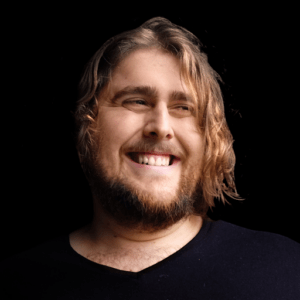culture and behaviours
‘Burnout is a potent hook for engaging blokes with mental health issues’ – Tough Cookie’s Michael Matania on his upcoming talk
Michael Matania explains how specialists with ‘lived experience’ of burnout are challenging a damaging ‘legacy corporate culture’.
“There’s less stigma” attached to burnout for men than comparable terms like stress, anxiety and depression, according to mental health expert Michael Matania.

Michael Matania
Matania, founder of workplace resilience training outfit Tough Cookie, explains that burnout is unburdened by “connotations of weakness that come with other mental health conditions”.
The former co-designer of a national mental health strategy for schools at charity Mind and founder of Time to Change’s Employee Mental Health Champions Network was speaking to SHP ahead of a Safety & Health Expo presentation in May 2023.
In his talk, Matania will discuss the drivers and consequences of burnout, spotting burnout in the workplace and how to engender positive cultural change.
SHP: What services does Tough Cookie provide?
Michael Matania (MM): We research, consult and train on the theme of human resilience.
We look at all the [relevant] literature and spread it in digestible forms so that anyone can understand and apply it. We do keynote talks to help organisations start that conversation and gather data about burnout in their workforce.
We also consult strategically with organisations, helping them move burnout and resilience higher up the priority ladder.
We run programmes looking at people capabilities. There are three main programmes: Mixed Mental Arts, about managing your thoughts and emotions during difficult times; Healthy Working Culture, which helps teams support each other to function sustainably, manage conflict properly and have a healthy work-life balance; and Building Resilient Teams, which helps line managers role-model healthy behaviours, create psychological safety and provide effective support to struggling employees.
SHP: What prompted you to launch Tough Cookie?
MM: I joined Mind through my own recovery journey – I had psychosis in my late teens through addiction, trauma. So I wanted to share what I’d learned during my recovery with as many people as possible.
 But although I was achieving a lot, I had several brushes with burnout. I wasn’t looking after myself, wasn’t resting properly.
But although I was achieving a lot, I had several brushes with burnout. I wasn’t looking after myself, wasn’t resting properly.
Tough Cookie was created to plug what I felt were gaps within the mental health and wellbeing paradigm of your ‘Wellness Wednesday’ or your ‘Fruit Friday’.
Most organisations are governed by what we call ‘legacy corporate culture’, which is essentially a set of norms dreamed up by Frederick Taylor and his contemporaries during the second industrial revolution.
Many employees’ lives have not been sunshine and rainbows and bring over-compensations in their behaviour to the workplace, like over-competitiveness, being overly independent or being overly compliant. And legacy corporate culture incentivizes these unhealthy behaviours, which can put people on burnout trajectories.
We need to have a conversation around this, because legacy corporate culture says: “wear a professional mask, leave your feelings at home and convince colleagues that you’ve got your act together”.
This creates a culture of silence. Around 70% of thousands of people we’ve surveyed were experiencing clinical burnout symptoms at that moment, but only 40% were telling their line manager or colleagues.
That is why I created Tough Cookie: to ring the bell loud and clear about the burnout epidemic in our organisations. And not blaming and shaming anybody, but creating a clear pathway for an organisation to move beyond the burnout paradigm, both at the individual level but also with the culture, structures and systems – because it’s a systemic issue.
SHP: Why do you focus on burnout in particular, and how do you distinguish it from other mental health issues?
 MM: Deloitte published an incredible piece of research in 2022. They defined burnout through three symptoms: physical and emotional exhaustion; cynicism towards your job and colleagues; and reduced performance due to mental health-related difficulties.
MM: Deloitte published an incredible piece of research in 2022. They defined burnout through three symptoms: physical and emotional exhaustion; cynicism towards your job and colleagues; and reduced performance due to mental health-related difficulties.
One in six employees experience mental health issues, whereas burnout figures are much higher: apparently 51% at any given time but our data suggests it’s more like 80-90% once people understand the symptoms. And since more people can recognise their own story in the burnout story they can connect to it more fully.
So it’s a potent hook for engagement, particularly for blokes because burnout doesn’t have the connotations of weakness that come with other mental health conditions.
There’s a particular story of masculinity that most men subscribe to. Most men aren’t going to show up to an activity called ‘managing anxiety’, as it’s suggesting they’re not coping and that’s incompatible with their self-image. There’s less stigma around burnout because it’s bound up in stoic [concepts] of graft, hard work, energy.
So we don’t talk about mental illness. We’re not focused on that one in four who are no longer able to function; we’re focused on that three in four, what we might call the ‘worried well’, who are struggling but still functioning.
Michael Matania will be speaking at in the Operational Excellence Theatre at Safety & Health Expo on Wednesday 17th May from 11.30 – 12.30. Register to attend here.
SHP: What techniques and traditions inform your methodologies?
MM: We draw on a collage of sources across lots of domains.
We think 80% of the problems in an organisation can trace their roots back to 20% of [missing] capacities [the Pareto distribution].
 So we ask: what are the 20% of tools, frameworks, practises that work in 80% of these situations? We teach frameworks, models and processes with an evidence base in the clinical literature, with roots in humanity’s great wisdom or contemplative traditions, and from our own lived, direct experience.
So we ask: what are the 20% of tools, frameworks, practises that work in 80% of these situations? We teach frameworks, models and processes with an evidence base in the clinical literature, with roots in humanity’s great wisdom or contemplative traditions, and from our own lived, direct experience.
One thing that makes us unique is that every single Tough Cookie trainer has lived experience of recovering from mental illness. So we’re speaking from the heart as well as the mind. It’s what the mental health sector calls a peer-led intervention, rather than from academics with intellectual credentials.
The Mixed Mental arts programme is informed by ‘acceptance and commitment therapy’, which is about ‘embodied cognition’ and basically third-wave CBT [cognitive behavioural therapy]. It’s what the NHS will probably be teaching in 10 years.
Most organisations just go for mental health first aid, even though the Health and Safety Executive says there isn’t really evidence that the positive impacts bleed out into the culture.
SHP: In a nutshell, what is the goal of your forthcoming Safety & Health Expo presentation?
MM: It will provide a roadmap for people operating in health and safety, who I think can be more trusted than HR with this particular topic. I feel like they’re uniquely placed to put in place the foundations of a culture that doesn’t burn people out.
‘Burnout is a potent hook for engaging blokes with mental health issues’ – Tough Cookie’s Michael Matania on his upcoming talk
Michael Matania explains how specialists with ‘lived experience’ of burnout are challenging a damaging ‘legacy corporate culture’.
Adam Bannister
SHP - Health and Safety News, Legislation, PPE, CPD and Resources Related Topics
New flexible working legislation – what does it mean?
Drug and alcohol testing in a UK airport environment
Almost half of UK manufacturing employers have increased spending on workforce health and wellbeing


 But although I was achieving a lot, I had several brushes with burnout. I wasn’t looking after myself, wasn’t resting properly.
But although I was achieving a lot, I had several brushes with burnout. I wasn’t looking after myself, wasn’t resting properly. MM: Deloitte
MM: Deloitte  So we ask: what are the 20% of tools, frameworks, practises that work in 80% of these situations? We teach frameworks, models and processes with an evidence base in the clinical literature, with roots in humanity’s great wisdom or contemplative traditions, and from our own lived, direct experience.
So we ask: what are the 20% of tools, frameworks, practises that work in 80% of these situations? We teach frameworks, models and processes with an evidence base in the clinical literature, with roots in humanity’s great wisdom or contemplative traditions, and from our own lived, direct experience.